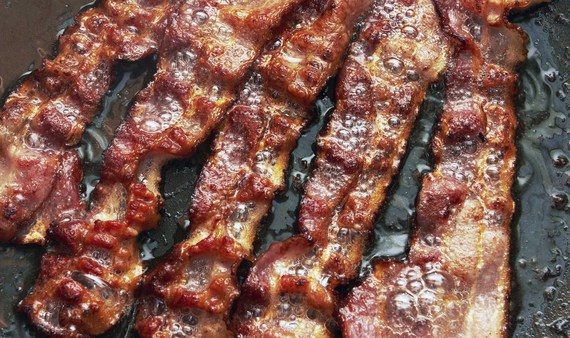A confession: If the scent of something delectable — be it brownies, lasagna or browning onions — wafts into my nose, I immediately crave brownies, lasagna and, yes, even browning onions. I’ve always assumed that piquant foods make other people drool on command too. But sense of smell is hardly uniform. One person might describe a kitchen as smelling faintly of Italian food, whereas another might feel suffocated by the smell of tomatoes, sauteed beef, oregano and garlic.
According to a recent study, heftier humans have a more vivid olfactory system, whether or not they’re hungry.
Researchers from the Yale School of Medicine and the John B. Pierce Laboratory presented their work at last week’s meeting of the Society for Ingestive Behavior. (Yes, that's a thing.) In the study, the Los Angeles Times reported, researchers asked participants to rate the intensity of imaginary visual and odor cues (e.g., imagine how fresh cupcakes look and smell). Heavier participants reported conjuring up more evocative odors associated with imaginary foods.
The researchers based their hypothesis on a theory of desire that says picturing food stimulates the mind, thereby triggering hard-to-ignore cravings. While interesting, the study’s findings hinged entirely on participants gauging odor intensity themselves. An objective measure of responses to scent —real or imagined — would strengthen the work. A similar study by some of the same Yale researchers, for example, focused on brain activity changes in response to food. They used fMRI to measure regional activation after participants sipped a milkshake on a full stomach.
The strength of subsequent activation in one brain region predicted who would gain weight, but only those participants who were genetically predisposed to have a high number of receptors for dopamine, the “pleasure” neurotransmitter. Basically, future heifers had reward-happy brains.
Considering this, researchers could presumably measure brain activity in response to whiffs of food and not base it on descriptions of smell alone.
